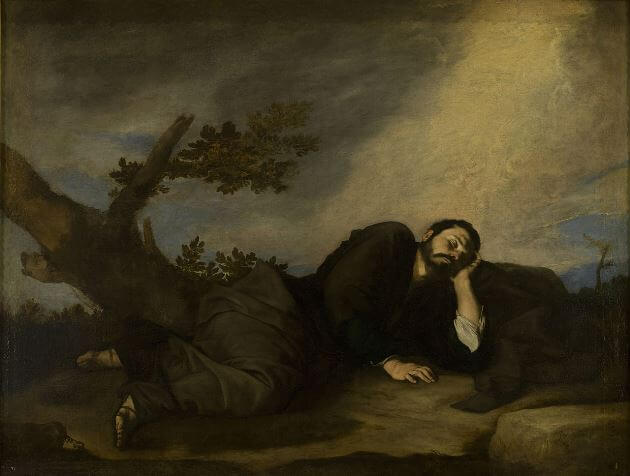
After leaving his family in Beersheba, Jacob reached Beth El at nightfall. Before lying down to sleep, Jacob prayed there.
He entreated at the place and stayed overnight, for it suddenly became night. (Gen. 28:11)
The Sages taught that it was in Beth El that Jacob established the third daily prayer — Ma’ariv, the evening service. While less obligatory than the morning and afternoon prayers, Ma’ariv has its own special benefits. The Talmudic sage Abba Benjamin testified that he took great pains every day of his life to recite the evening prayer before going to sleep (Berakhot 5b). What is so special about this prayer?
Refining Desires and the Imagination
When we are asleep, our cognitive and rational functions are suspended, and the body’s involuntary processes take over. Only our powers of imagination remain active, guiding our dreams as we sleep. Without the control and regulation of our intellectual faculties, a measure of impurity descends on the body during the night. We remove this impurity by washing our hands when we rise in the morning.
Holy individuals may experience sublime visions in their sleep, like Jacob, who dreamt of angels ascending and descending a Heaven-bound ladder as he slept in Beth El. However, it is only the soul that experiences these visions. The body is detached from the soul during sleep and is not influenced by the soul’s uplifting experiences.
We have two tools for spiritual growth: Torah study and prayer. Abba Benjamin’s statement on the importance of the Ma’ariv prayer helps clarify how each tool ennobles a different facet of the human soul
When we study Torah, we refine and elevate our intellectual powers. The function of prayer, on the other hand, is to uplift our faculty of ratzon, our will or primal desires. Through prayer and introspection, we refine our will and powers of imagination. As we articulate our inner needs and aspirations in prayer, our desires are elevated toward holier, more spiritual goals.
Our imaginative faculties are closer to our physical side than the intellect is. Thus they function even as we sleep, in our dreams. Since it is through prayer that we can most effectively direct those faculties still active during sleep, it is logical that prayer before sleep will have the strongest impact on this aspect of life. For this reason, Abba Benjamin stressed the importance of his nighttime prayer.
(Sapphire from the Land of Israel. Adapted from Ein Eyah vol. I, p. 19)
Illustration image: ‘Jacob’s Dream’ by Spanish painter José de Ribera (1639)